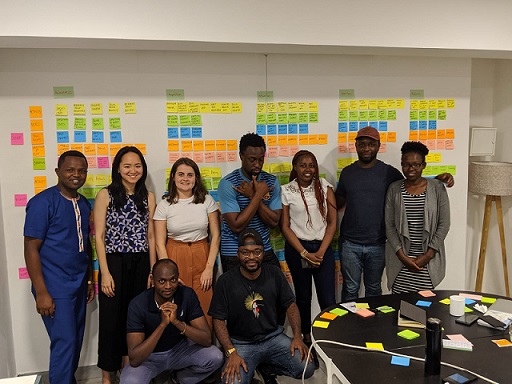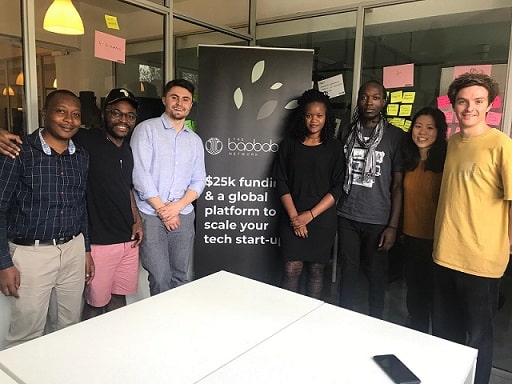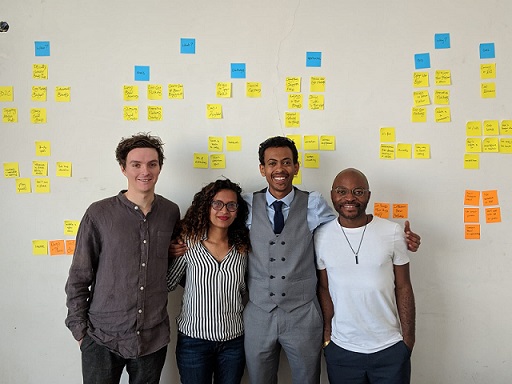Tom Fairburn and Toby Hanington met at the University of Bath and upon graduation set up The Baobab Network (TBN) to support businesses across the globe.
Though set up as an accelerator with a keen interest in Africa, TBN has worked closely with venture investors and startups around the world. The name, brand, and identity are inspired by the Baobab tree, an iconic symbol of life and growth in sub-Saharan Africa. In 2019 alone, TBN has invested in and worked with 7 startups on the continent.
And as is our mandate to put the spotlight on Africa-focused private and institutional investors and their activities, we make The Baobab Network share some insights on how they invest.
What does the term VC investment mean to The Baobab Network?
For us, venture capital means investors that actively look to take risks and back companies that have the potential to scale rapidly. At The Baobab Network, we are set up more as a company builder and accelerator, rather than a pure-play play VC, as although we provide funding, our main offering to founders is the focused support for founders right at the start of their journey.

We are plugged into most of the leading VCs active in Africa who like our process as it delivers a regular pipeline of interesting, diverse, and well-supported African tech companies. We rely on these larger VC players to provide follow on funding for the businesses we back further down the line.
How did The Baobab Network begin into investing in startups?
The Baobab Network launched in early 2016, so we are just entering our fourth year as a company. We have built the business from the ground up, initially running week-long accelerator programmes across the African continent for early-stage startups.
These programmes were sponsored by big corporates around the world that provided talent, workshops, and funding for the programme.

With time we realised that these programmes were driving huge value into startup founders. However, startups were not scaling quickly, and founders were often having to go back to sidekick jobs due to a lack of funding. Since the start of 2019, we’ve been supporting companies with $25,000 in funding at the end of our accelerator weeks, which has massively improved the growth we are seeing in our portfolio.
Companies can really kick on, make hires, invest in their products, and start building towards their next funding round from day one.
Every VC has eyes for certain markets. Kindly tell us what market The Baobab Network is interested in and why?
We are sector and country agnostic within Africa, although have a strict focus on technology companies. The big markets we have invested in this year are Ethiopia, Nigeria, Kenya, Morocco, Ghana, and Zimbabwe. We are also excited by Egypt and the Democratic Republic of the Congo (DRC) and are already looking at companies there for next year. We like to diversify the jurisdictions we work in and make sure we are supporting founders across emerging ecosystems as well as more developed markets.

Lastly, we are doing a big push on francophone and lusophone countries. There are many startups operating in those markets and we strongly believe we can support players in those markets as they have talents, creativity, and large markets when unified. On this side, the main markets of focus for us in 2020 are Senegal, Côte d’Ivoire, the Democratic Republic of the Congo (DRC), Morocco, Tunisia, or Angola.
Kindly explain the process that goes into how TBN decides that a startup is investible
Every year we have around 1000 startups apply for our programme, so we are quite selective in the businesses that we end up working with. In terms of criteria, we will assess a company on the quality of its product, traction, team, and ‘big vision’ for their idea.
In terms of process, founders initially submit a pitch online, answering broad questions about their business. We then have a series of interviews and calls that allow our team to better understand the founders’ ambitions and plans.

If a company makes it through these initial stages, then we have an investment committee that sits every week, which has the final sign off on decisions. We also try and exclusively back businesses run by local founders living in-market, which is a big differentiator for us.
Going by the standards of TBN, what shouldn’t a startup be doing?
A startup should not try to do everything, especially when they are at the beginning of their journey. We like to find teams that are going after big market problems, with huge visions, but are executing things well with a real focus on creating value for users and customers.
We don’t like to see founders chasing big funding rounds, competitions, or grants; we’d much rather see them putting in the long hours to produce something special. We are able to quickly find out if a company’s unit economics do not add up or if the technology is not strong, so we prefer founders to be upfront about the challenges they are having as this can be where we focus our efforts through the accelerator and funding.
At what growth stage does TBN invest in startups and why?
We focus on pre-seed companies and the funding that we put in tends to be the first money into a business. Startups can apply with just an idea, but we prefer to see that they have built a prototype and have some early traction. If they are at the idea stage, they should at least have validated market demand for the product or service. A big part of our role is to nurture and grow the tech ecosystem in Africa and build a solid pipeline for investors looking at slightly larger deals further down the line.
How does TBN deal with the bad investment?
If a company makes it into our accelerator, then we support them for 2 years. We know that in emerging markets, things can take slightly longer, so we want founders to know that we are in it with them for the long run.
If a company begins to struggle, we try our best to look at the challenges and encourage founders to pivot and iterate depending on what the market is telling them. We always try and take a positive view of the experiences we have through our portfolio, so if a company in the future does fail, we will take learnings from that and share with our networks so that others can avoid similar mistakes.
All of our portfolio companies are still in business, which we are very proud of.
What industries are of most interest to TBN while seeking where to invest?
Sector-wise, we like to back macro trends in big sectors like healthcare, education, mobility, and financial services. We have a full-time team of analysts in Nairobi whose day job is to predict where key markets are moving and where technology will impact these sectors.
We like to work with founders that have a sense of purpose in the work they are doing, as our belief is that this will drive longer-term sustainability and value into their businesses.
What investment opportunity has TBN regrettably passed on and why?
We are very happy with all the companies we’ve backed so far. Although they never applied to our accelerator, one company that we admire is Kobo360, that recently took in strategic funding from Goldman Sachs. It would have been cool to get involved with them right at the start of their journey as they would have been a fit for us, however, we weren’t quite set up when they launched. That’s a nice example of a company with a great team and a strong business model tackling a big problem using technology.
What startups are currently in TBN’s portfolio?
We have 12 startups in our portfolio across 8 countries and across various industries. Our 2019 portfolio companies are:
- Gladepay: powering fintech and eCommerce businesses in Nigeria
- Twende: transforming the transport industry for millions of Kenyans
- BeBlocky: inspiring the next generation of coders in Ethiopia
- Dr CADx: empowering radiologists in Zimbabwe through AI
- PocketDoc: driving efficiencies for doctors in Morocco and across Francophone Africa
- Pennysmart: building Ghana’s first digital bank
- Kakbima: disrupting Kenya’s 2 billion dollar insurance industry
How can startup founders reach The Baobab Network?
You can reach us at ventures@thebaobabnetwork.com









